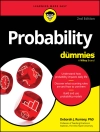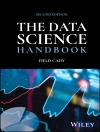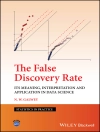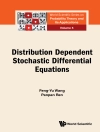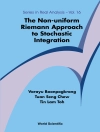A new edition of the most comprehensive overview of statistical methods for environmental monitoring applications
Thoroughly updated to provide current research findings, Statistical Methods for Groundwater Monitoring, Second Edition continues to provide a comprehensive overview and accessible treatment of the statistical methods that are useful in the analysis of environmental data. This new edition expands focus on statistical comparison to regulatory standards that are a vital part of assessment, compliance, and corrective action monitoring in the environmental sciences.
The book explores quantitative concepts useful for surface water monitoring as well as soil and air monitoring applications while also maintaining a focus on the analysis of groundwater monitoring data in order to detect environmental impacts from a variety of sources, such as industrial activity and waste disposal. The authors introduce the statistical properties of alternative approaches, such as false positive and false negative rates, that are associated with each test and the factors related to these error rates. The Second Edition also features:
* An introduction to Intra-laboratory Calibration Curves and random-effects regression models for non-constant measurement variability
* Coverage of statistical prediction limits for a gamma-distributed random variable, with a focus on estimation and testing of parameters in environmental monitoring applications
* A unified treatment of censored data with the computation of statistical prediction, tolerance, and control limits
* Expanded coverage of statistical issues related to laboratory practice, such as detection and quantitation limits
* An updated chapter on regulatory issues that outlines common mistakes to avoid in groundwater monitoring applications as well as an introduction to the newest regulations for both hazardous and municipal solid waste facilities
Each chapter provides a general overview of a problem, followed by statistical derivation of the solution and a relevant example complete with computational details that allow readers to perform routine application of the statistical results. Relevant issues are highlighted throughout, and recommendations are also provided for specific problems based on characteristics such as number of monitoring wells, number of constituents, distributional form of measurements, and detection frequency.
Statistical Methods for Groundwater Monitoring, Second Edition is an excellent supplement to courses on environmental statistics at the upper-undergraduate and graduate levels. It is also a valuable resource for researchers and practitioners in the fields of biostatistics, engineering, and the environmental sciences who work with statistical methods in their everyday work.
Mục lục
Preface xv
Acknowledgments xxiii
Acronyms xxv
1 Normal Prediction Intervals 1
2 Nonparametric Prediction Intervals 35
3 Prediction Intervals for Other Distributions 67
4 Gamma Prediction Intervals and Some Related Topics 77
5 Tolerance Intervals 97
6 Method Detection Limits 111
7 Practical Quantitation Limits 137
8 Interlaboratory Calibration 147
9 Contaminant Source Analysis 161
10 Intra-Well Comparison 191
11 Trend Analysis 205
12 Censored Data 217
13 Normal Prediction Limits for Left-Censored Data 245
14 Tests for Departure From Normality 257
15 Variance Component Models 281
16 Detecting Outliers 289
17 Surface Water Analysis 303
18 Assessment and Corrective Action Monitoring 317
19 Regulatory Issues 337
20 Summary 351
Topic Index 366
Giới thiệu về tác giả
Robert D. Gibbons, Ph D, is Director of the Center for Health
Statistics and Professor of Biostatistics and Psychiatry at the
University of Illinois at Chicago. A Fellow of the American
Statistical Association and member of the Institute of Medicine of
the National Academy of Sciences, Dr. Gibbons has written more than
200 journal articles in the areas of statistics and psychometrics.
He is the coauthor of Longitudinal Data Analysis and
Statistical Methods for Detection and Quantification of
Environmental Contamination, both published by Wiley.
DULAL K. BHAUMIK, Ph D, is Professor of Biostatistics,
Psychiatry, and Bioengineering at the University of Illinois at
Chicago. A Fellow of the American Statistical Association, Dr.
Bhaumik has published more than fifty journal articles in his areas
of research interest, which include environmental statistics,
statistical problems in psychiatry, biostatistics, design of
experiments, and statistical inference.
SUBHASH ARYAL, Ph D, is Assistant Professor of
Biostatistics at the University of North Texas Health Science
Center at Fort Worth. He has coauthored numerous published articles
on statistics in the environmental sciences.







